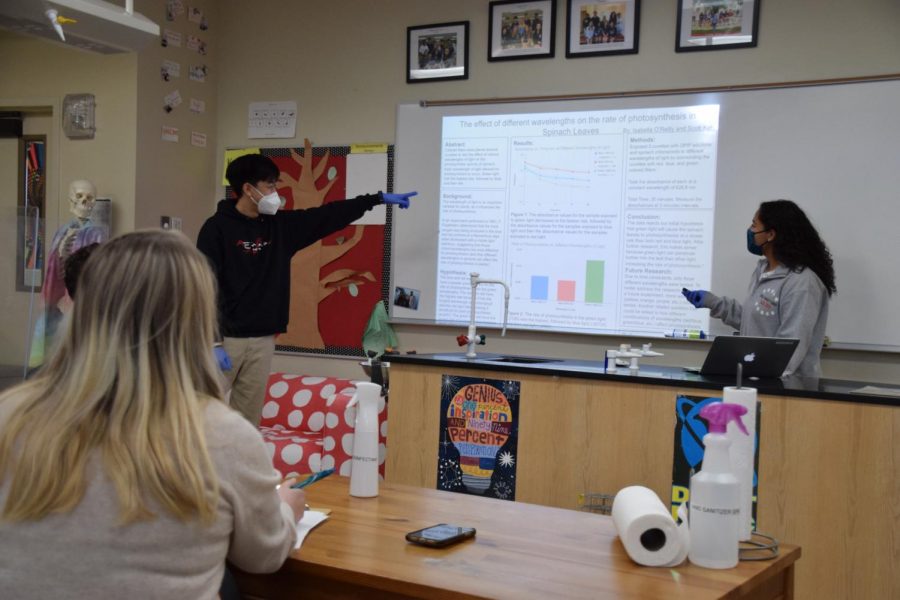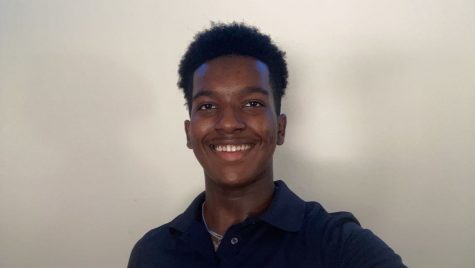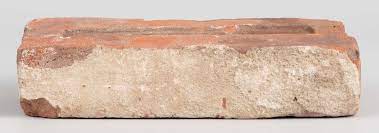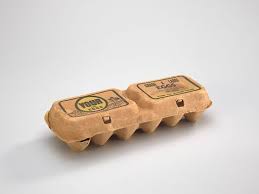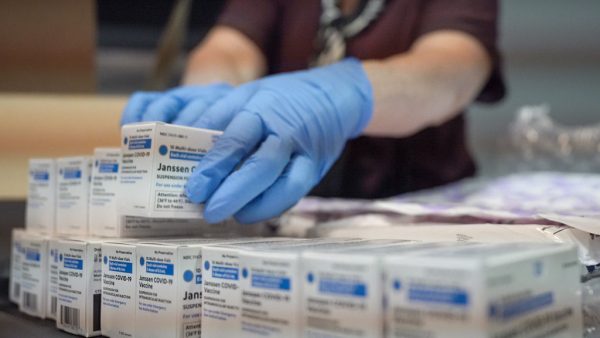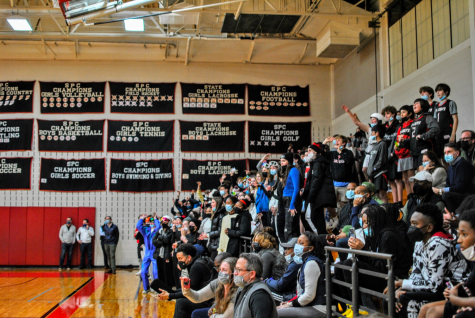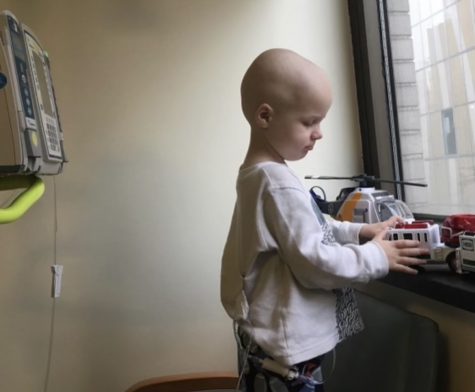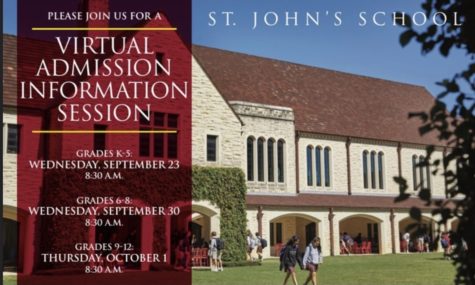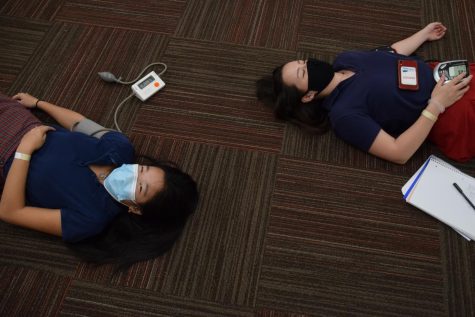Culminating projects, tests replace midterm exams
Seniors Scott Koh and Isabella O’Reilly give a presentation on their photosynthetic rates lab in AP Biology.
December 15, 2020
Three years ago, Hurricane Harvey forced Rachel Kim to finish her first semester of high school without taking midterm exams. At the start of the semester, the school canceled midterms again, concerned that COVID would limit students’ abilities to fully understand course material.
“Studying for midterms would have been very difficult,” senior Lauren Fulghum said. “So much material was learned online, so I don’t have the best memory of it.”
In many classes, such as Organic Chemistry, culminating projects like infographics, blogs and essays have replaced midterms. Other classes, including honors physics, have tests in either the penultimate or final week of school.
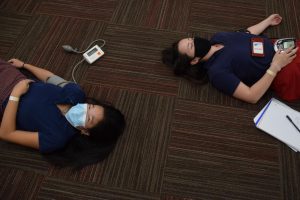
Instead of taking a three-hour exam in one sitting, students work on projects for days or weeks, and some classes permit peer-to-peer collaboration. Midterms are usually worth 20-25% of the semester average, but projects are worth only a test or quiz grade. Because of these adjustments, some students feel less stressed than in midterm years.
“Regardless of the amount of work that has to be put into final projects, having to study for midterms is always a little more stressful because you never quite know what you are going to get,” senior Jenny Green said.
Other students, however, prefer the midterm assessments because some projects require a larger amount of work.
“Rather than studying a ton, I have had to work diligently throughout the past few weeks just to make sure that I get these projects done on time,” Kim said.
Regardless, students appreciate the school’s efforts to lessen the anxiety caused by the pandemic.
“We’re in a crisis,” Fulghum said, “and the school is doing its best to remove some of that stress.”



